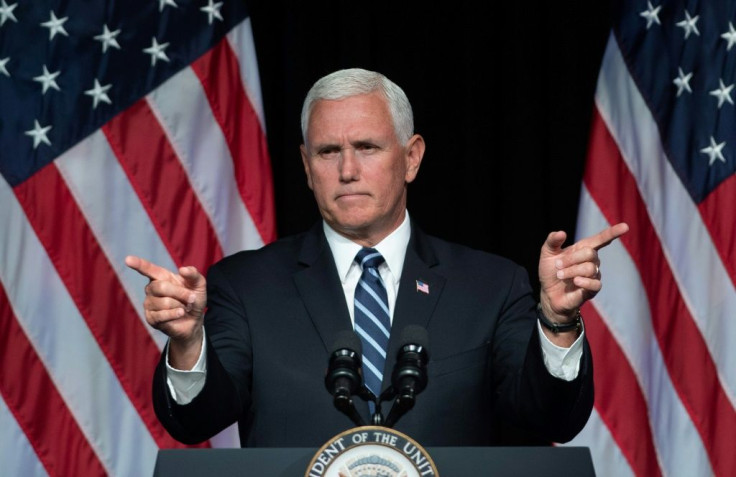Is America Ready For President Pence? How The Oval Office Will Be Different If Trump Is Removed By Senate

As the Senate weighs the possible conviction of President Trump during the impeachment trial, thoughts of many may be drifting to the prospect of a Mike Pence presidency.
On Tuesday, an anti-Trump group, Republicans for the Rule of Law, made headlines with a truck with the image of Pence cruising around Washington, D.C., for eight hours. The mobile billboard campaign features messages such as “Remove Trump For Pence” and “Pence, It Could Be Worse.”
“Removing President Trump from office wouldn’t undo the 2016 election. The same voters and electors who chose President Trump also chose Vice President Pence,” Tim Miller, a spokesperson for the group told the Huffington Post.
So what would a Pence presidency look like?
Pence, 60, doesn't share too many similarities with Trump. He grew up in the Midwest, attended public school, is an evangelical, born-again Christian and remains married to his first wife — a stark contrast to Trump's upbringing. Pence uses Twitter less frequently than Trump and speaks in a more measured and cautious manner.
Should Pence move into the Oval Office, he might have his work cut out for him. As former George W. Bush speechwriter Matt Latimer explained in a Politico article in May 2017, Pence would need to select a vice president, decide on Trump's fate, attempt to keep the Republican party together, and craft policies that might be similar to Trump's agenda while also considering a run for re-election in November.
But like President Gerald Ford in the mid-1970s, Pence would essentially be a lame-duck president until the term ends. The country would have renewed focus on the presidential election as several Republican candidates would likely throw their hats into the race.
At the same time, Pence could prove to be a viable candidate and continue Trump's policies. He holds anti-abortion and pro-gun stances and would almost certainly appoint conservative federal judges. Pence has also been in favor of a wall along the U.S.-Mexico border.
Unlike Trump, Pence would bring plenty of public-sector experience. He served as the governor of Indiana from 2013 to 2017. While in office, he enacted right-to-work legislation and cut state taxes. Pence also pushed for more state money for voucher programs and charter schools.
In March 2015, Pence signed a “religious objections” bill into law, called the Religious Freedom Restoration Act, which critics say would permit discrimination against LGBT people. The law caused demonstrations, with major figures such as Apple CEO Tim Cook criticizing the legislation.
From 2001 to 2013, Pence was a member of the U.S. House of Representatives from Indiana. He had introduced 90 bills and resolutions during his tenure, none of which became law.
The chances of Pence becoming president in 2020 are still slim. Few expect Trump to resign and Las Vegas bookmakers list the odds of Trump getting convicted by the Senate at 20/1.
© Copyright IBTimes 2024. All rights reserved.





















